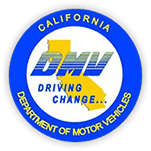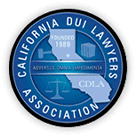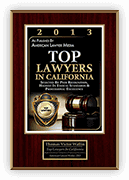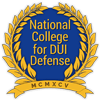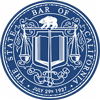California’s Vehicle Code 23152 stipulates that before a police officer can pull you over on suspicion of driving under the influence, he or she must have a specific reason for doing so or “probable cause.” Probable cause in a legal context means that the officer charged with enforcing the law must have grounds for believing that criminal activity – in this instance, driving under the influence – did take place or is taking place. This follows from the Fourth Amendment to the U.S. Constitution, which prohibits unreasonable searches or seizures.
Probable cause is supposed to be an objective standard that precedes apprehension or arrest and is based on factual evidence. In practice, though, “probable cause” often reflects an apprehending officer’s subjective biases or hunches based on observations made after a suspect has been detained.
One of the reasons why it’s very important to speak with an experienced attorney as soon as possible if you’re charged with driving under the influence is that your lawyer may be able to use probable cause discrepancies to mount an aggressive criminal defense that will protect your legal rights.
Any violation of traffic law can provide sufficient grounds for initiating a traffic stop regardless of whether or not a driver is suspected of a DUI. Violations can include activities that may appear dangerous such speeding, swerving, tailgating too closely, or straddling a lane, but they can also include activities that may appear to be relatively minor such as a failure to signal when making a turn.
Once the officer has established probable cause, he or she will initiate the traffic stop by turning on the police car’s flashing red and blue lights. This is a signal to the motorist to pull over.
The officer will notify dispatch that a traffic stop has been initiated and report the vehicle’s license plate number so that it can be run through the California law enforcement database for any past or current violations. During this time, the driver and any passengers in the stopped vehicle should remain motionless with their seat belts in place.
If an officer suspects that the driver of the car that’s been stopped is under the influence of alcohol or drugs, the officer will be on the lookout for physical evidence that supports this contention. The officer will scrutinize the driver’s demeanor and try to detect the smell of alcohol. Although the driver will be the person of primary interest, other passengers in the car can give clues to the driver’s sobriety, too, so the officer will be observing them closely.
The officer will ask questions to establish the driver’s identity, and these questions need to be answered. Other questions, however, need not be answered. The officer may be looking for information to confirm a DUI, but he or she is under no obligation to inform the driver or the passengers of that fact, and it may be best to refrain from giving information that might confirm the officer’s speculation.
The officer may also ask the driver to complete a roadside sobriety test. If the officer has not made a formal arrest, California law does not require such tests. They are frequently inaccurate, and they can be refused. If you refuse a sobriety test, however, there’s a good chance that you will be arrested and taken into custody.
Once you’ve been arrested, California Vehicle Code Section 23612 stipulates that you must consent to a chemical test that will determine the extent of any alcohol- or drug-related impairment. This is known as “implied consent.” You have no right to consult with an attorney about whether or not you should consent to this test, and if you refuse it, you will be fined and your driving privileges will be suspended. Additionally, if you are subsequently convicted on DUI charges, you may be sent to jail.
This chemical test will involve obtaining a sample of your breath, blood, or urine, and it will be conducted either in a hospital setting or in the police station at which you’re detained.
If you’ve been arrested and charged with driving under the influence, it’s imperative to begin working with a qualified attorney as soon as possible. Your lawyer will examine the specific circumstances of your case and help you protect your legal rights by mounting a criminal defense.


